Table of Contents:
Located in Central Europe, Austria is a German-speaking country that is noted for its alpine scenery. The landscape is characterized by alpine villages, rugged terrain, and baroque architecture. Vienna, which is located on the Danube River, is the capital. In this post, we are giving you fun facts about Austria that will probably surprise you!
You will find here facts about Austrian culture, geography, politics, customs, and more.
Political Facts About Austria
Austria Is One Of The Most Peaceful Countries In The World
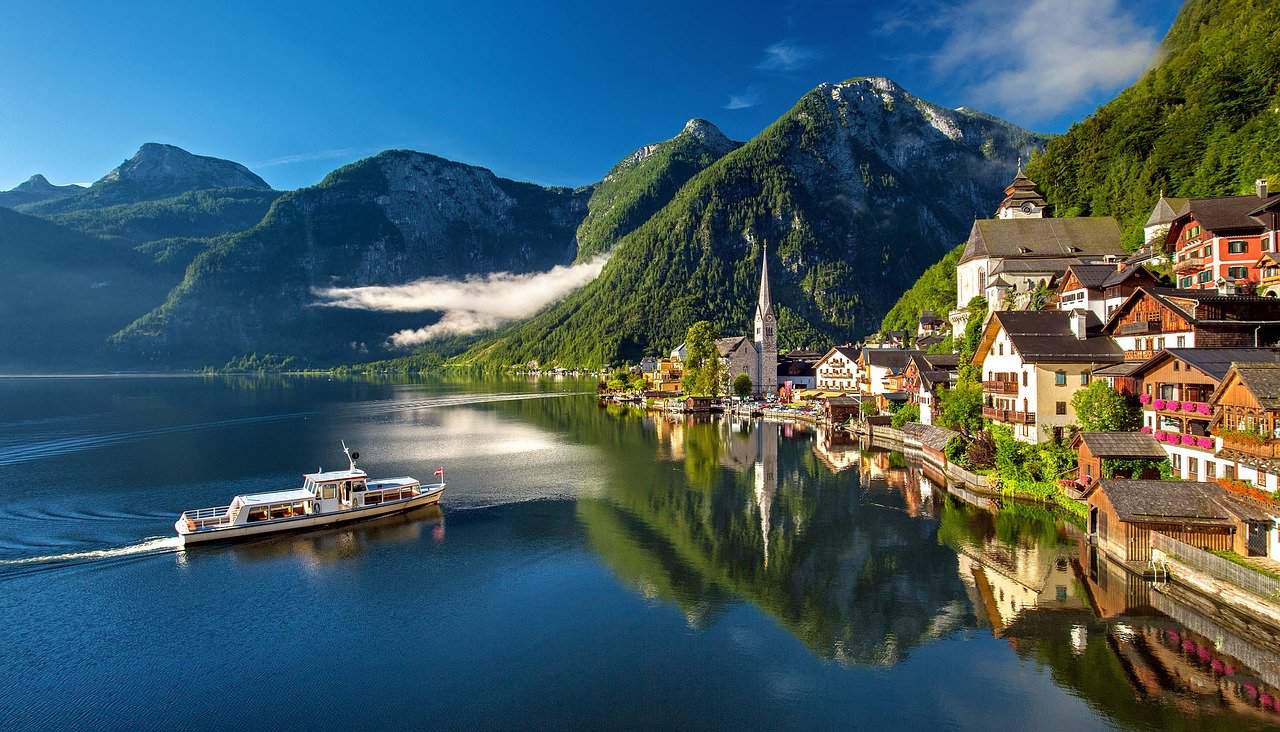
According to the Global Peace Index, Austria is in the top 5 world’s most peaceful countries, with Iceland being a winner.
That makes a very safe destination and explains why so many people are choosing to travel to Austria every year.
Austria Is One Of The World’s Most Eco-Friendly Countries
Austrians must appreciate their land and nature as they are also known to be the top recyclers in Europe. About 63% of waste is recycled in the country.
It’s also worth knowing that most of the electricity in this country comes through the use of renewable energy sources.
Interesting Facts About Culture Of Austria And Austrian People
Austrian Pacifist Was The First Woman Who Received Nobel Peace Prize
One of the fun facts about Austria is associated with the country’s tendency to win the Nobel Prizes. The tally of the prizes makes Austria a leading country in this respect. Seven of the prizes have been awarded in physiology or medicine while four have been given in chemistry and three in physics.
Also, the Austrian novelist Bertha von Suttner was the first woman to receive the Nobel Peace Prize in 1905. Because of this record, the country can boast one the highest number of Nobel laureates per capita. Austria only follows Luxembourg, the Scandinavian countries, and Switzerland in this respect.
People In Austria Still Wear Traditional Clothing From Time To Time
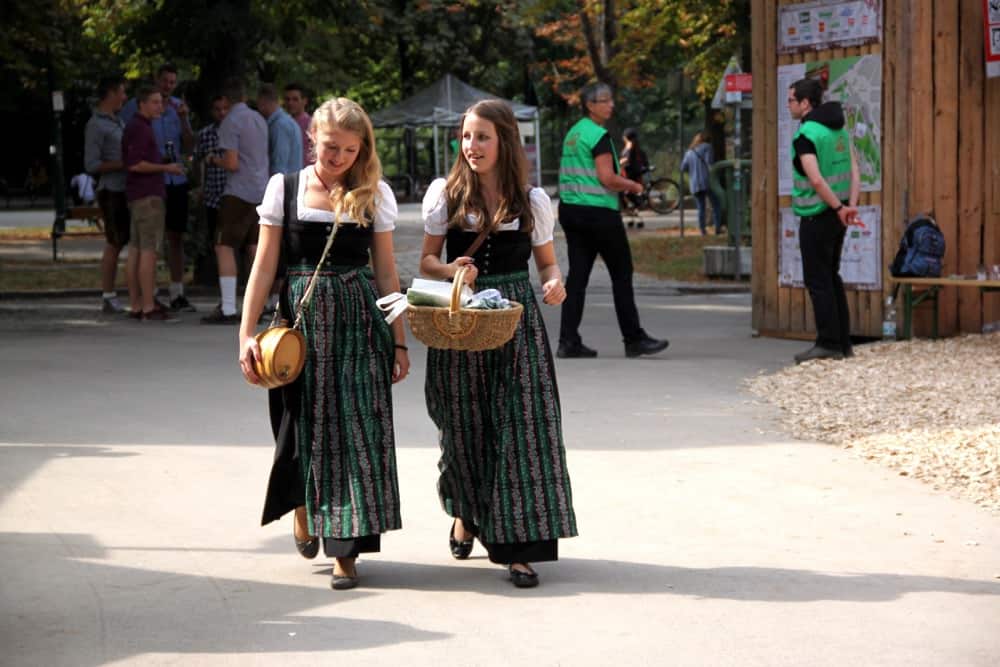
If you think that traditional Austrian clothing that you can see during Octoberfest is only to dress up, you are wrong! Austrians truly embrace their culture and they are not ashamed to wear dirndls on special occasions.
In Austria, the traditional folk costume known as the Tracht is accepted as formal attire and can be worn to elegant balls at the Viennese Opera. While men wear green Loden Jackets and leather breeches, women don Dirndl dresses.
Many Famous People Were Born In Austria
One of the interesting facts about Austria is that the world’s most hated leader, Adolf Hitler, was actually Austrian. He was one of many notable Austrian citizens. The list includes also:
- Arnold Schwarzenegger
- Sigmund Freud
- Wolfgang Amadeus Mozart
- Franz Kafka
- Christoph Waltz
- Niki Lauda
- and more
Some Of The World’s Greatest Psychopaths Were Born In Austria
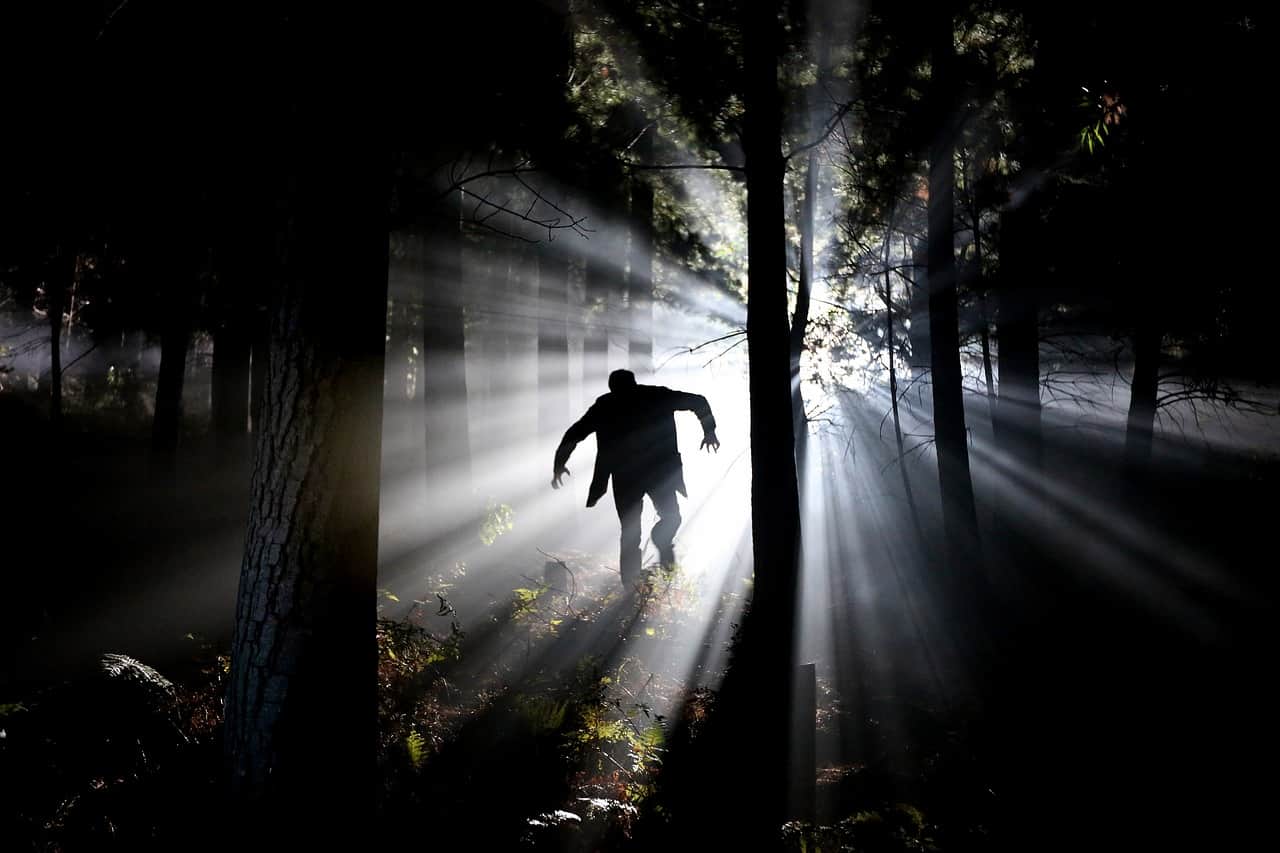
One of the not so fun facts about Austria is that some of the world’s greatest psychopaths were born in this country.
The most famous is, of course, Adolf Hitler who is responsible for deaths of 70–
Josef Fritzl is another Austrian psychopath who captivated his own daughter at the age of 18. He kept her in the basement for 24 years, as a sexual slave. She was forced to give birth to 7 children from this incestuous relationship. None of them has ever seen the daylight. They managed to escape when one of their daughters needed hospital care. More about this case here.
A similar crime took place in Vienna not so long ago. A 10-year old girl, Natascha Kampusch was kidnapped by Wolfgang Přiklopil on the way to school. She was kept captivated for 8 years until she managed to escape.
Historical Facts About Austria
World’s Oldest Zoo Is Located In Austria
The next Austria fact is that the oldest zoological garden in the world is located in the Austrian capital. Tiergarten Schönbrunn was established in Vienna in 1752. Another one of the oldest sites in the country is Haslauer, which was founded as Stiftskeller St. Peter in 803. The business is the world’s oldest inn and restaurant that is still in operation. It is also the oldest company on the European continent.
Another historic site is Vienna’s Central Cemetery, which is called Zentralfriedhof. The final resting place is home to over 2.5 million tombs, which is a number that is higher than the city’s current population. You can find the tombs of Brahms, Beethoven, Gluck, Schoenberg, Schubert, and Strauss in the cemetery.
Austrian Empire Was One Of The Most Powerful Countries in Europe
In 19th century, Austria was one of the most powerful countries in the world. The total area of this multinational hegemon was 698,700 km2 (269,800 sq mi) which is almost 8 times more than the size of today’s Austria- 83,879 km2 (32,386 sq mi).
Isn’t it one of the most interesting facts about Austria?
Interesting Facts About Geography Of Austria
Most Of The Country Is Covered With Mountains
One of the interesting facts on Austria is that when it comes to topography, Austria is primarily made up of mountains. The Austrian Alps cover just over 62% of the country’s land area. Europe’s second-highest and prominent peak is Großglockner, which stands at 3,798 meters with a prominence of 2,423 meters.
Indeed, Austria is defined by a mountainous terrain as the country features 13 peaks that are above 3,000 meters and 34 peaks above 2,000 meters. The country also boasts spell-binding cascades. The Krimml Falls, or Krimmler Wasserfalle, in the state of Salzburg are Europe’s tallest waterfalls. They extend to a height of 380 meters.
Random Facts About Austria
Vienna Is Considered As One Of The World’s Best Cities To Live In

If you see the rank of the best cities to live in the world, you can be certain that it includes Vienna.
Independent made it a winner of its rank in 2019. Why Vienna is such a great place to live in?
It’s because the quality of living is high in Austria’s capital. The factors include housing, political and social environment, economy, and health consideration.
World’s Largest Emerald Can Be Found In Austria
You can also find the world’s largest emerald in Austria, a 2,860-carat sparkling green gem. The sizable emerald is displayed in the Imperial Palace in the Imperial Treasury of the Hofburg in Vienna.
Vienna Is A Capital Of Classical Music
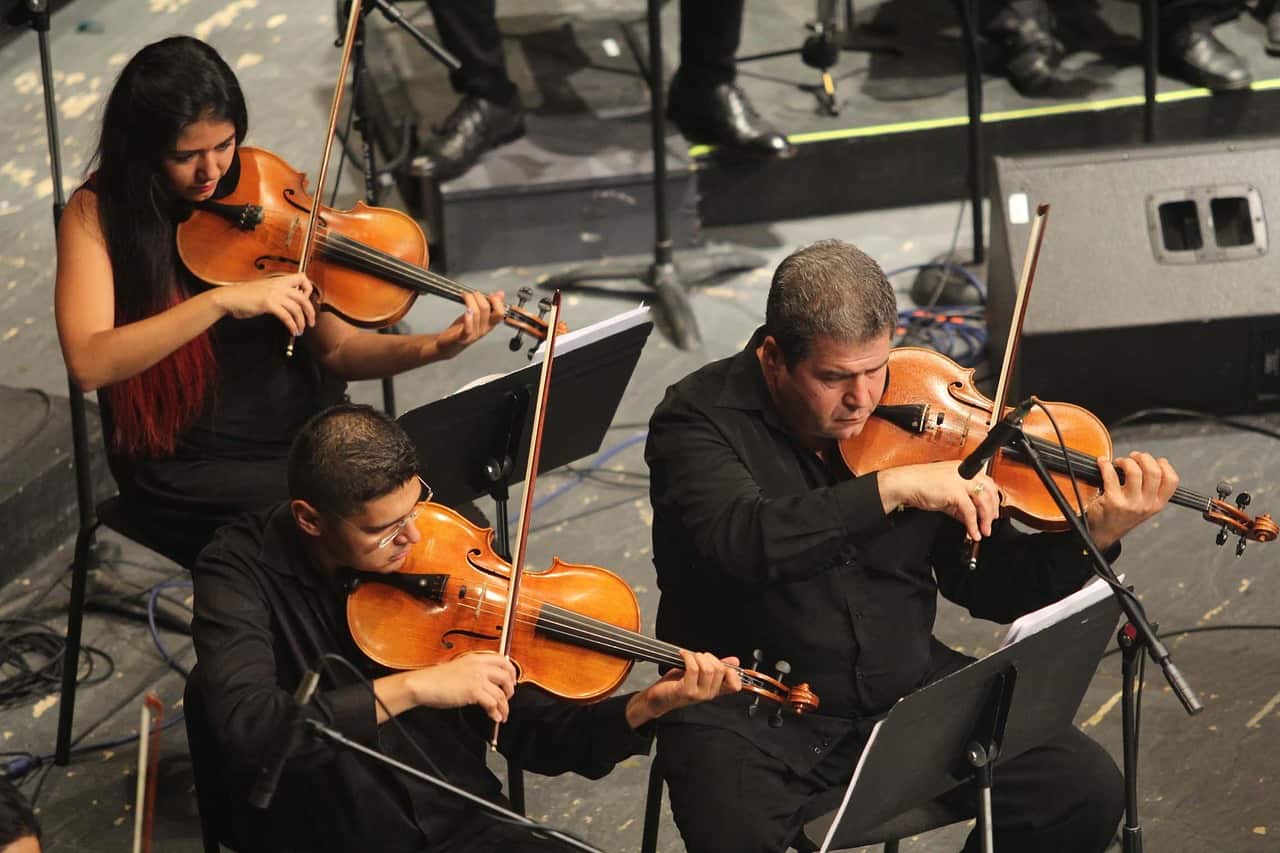
One of the interesting facts about Austria is that its capital is – and has always been- as the classical music capital of the world.
It’s where the famous New Year’s concert takes place every year on January, 1st.
Austria is a homeland of some of the best classical musicians ever, including:
- Wolfgang Amadeus Mozart
- Ludwig van Beethoven
- Franz Schubert
- Joseph Haydn
- Johann Strauss
- and many more
There Are Many Brilliant Austrian Inventions That We Use Every Day
One of the interesting facts on Austria is that Josef Madersperger, an Austrian, invented the sewing machine.
Born in Salzburg, Christian Doppler is famous for his discovery of what is known as the Doppler Effect. The Doppler radar used by meteorologists relies on this Doppler Effect.
Other inventions that we owe to Austrians include:
- alkaline battery
- psychoanalysis
- slow motion
- and many more
Other Fun Facts Of Austria
Let’s take a look at the other fun facts of Austria.
Because the Austrian spa waters of Bad Gastein contain radon, patients must present a doctor’s order before enjoying the water’s “healing” effects.
The first postcards that were circulated were used in Austria.
Downhill or alpine skiing has been the most popular sport in Austria for over a century. The first handbook on skiing was written by Mathias Zdarsky in 1897.
Basic Numbers And Facts About Austria
- Austria’s official language is German, however, it’s slightly different from the one spoken in Germany.
- The government of Austria is defined as a Federal parliamentary republic. The Upper House in Parliament is known as the Federal Council while the Lower House is called the National Council.
- Austria joined the European Union on the first of January in 1995.
- Austria is bordered by 8 countries including Germany, the Czech Republic, Switzerland, Liechtenstein, Slovenia, Italy, Hungary, and Slovakia.
- One of the fun facts on Austria is the name of the country is derived from the Germanic word “Austro,” which means “east.” In German, Austria is called Osterreich, which means “Eastern Kingdom.”
- The population of Austria is 8 million people which is pretty much the same as in Bangkok, Thailand.
- Austria is the only member of the European Union that is not a member of NATO.
Pin For Later:
Did you know any of these Austria facts? Do you have something more interesting to add? Share your thoughts in the comments!

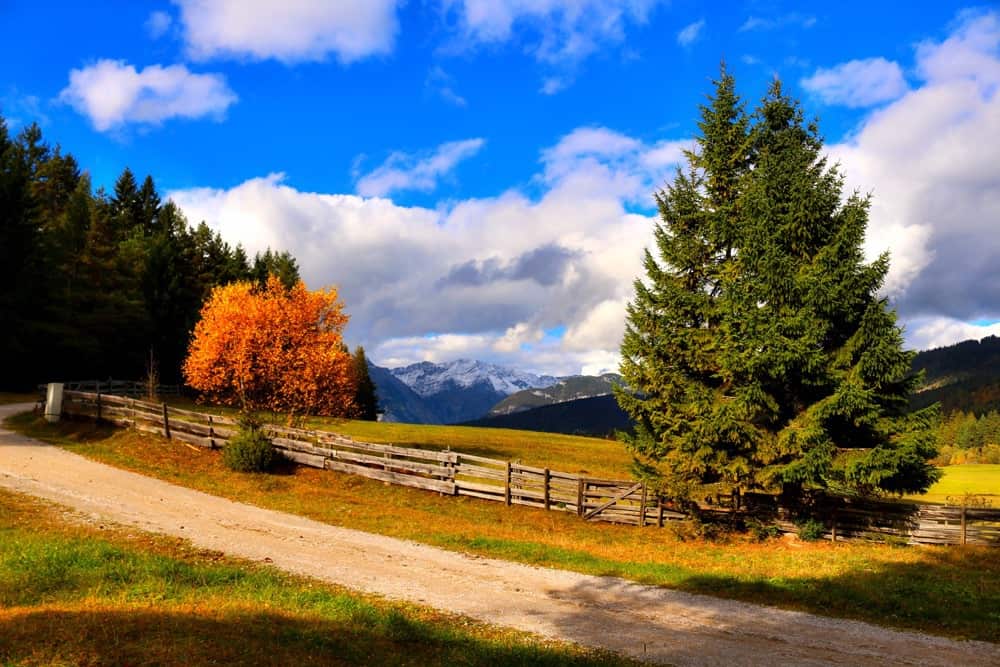
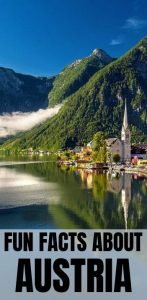


12 Responses
pretty pictures!!
Thanks Romeo :)
Great article, thanks for sharing this.
I have an invested interest in Austria and love reading positive articles like this that highlight exactly why I developed such as strong passion for the country in the first place.
Whether it’s cities like Salzburg and Vienna or alpine locations like Solden, there is so much on offer for every type of traveler.
I did not know so many famous and my favourite musicians were born here!!!! WOWZA!!!!!
Although I never went to Austria, I already knew many of these curiosities. Austria is really a very interesting place and cities like Vienna and Salzburg are on my list of future destinations.
That’s true, Austria is amazing!
Hi,
As well as Austria, Ireland is also not a member of NATO.
Very nice blog, but the amount of mountains over 2000m is not correct. There are over 946 mountains that are higher than 3000m, and over 2353 peaks that are higher than 2000m
Nice greets from austria!
Thanks for your correction!
Hi, as a native Austrian I can offer a proposal for corrections and a bonus fun fact:
(1) “Austria’s official language is German, however, it’s slightly different from the one spoken in Germany.”
This is factual incorrect.
1.1.) The official language is Austrian German, we have our own official state dictionary including own grammar. Austrian German is in that regard (similar to Swiss German) way more standardized than what is used in German which doesn’t even have a dictionary issued and maintained by the state (and in all fairness that would be quite a challenge because it’s not uncommon that Germans multiple redundant words which are only used in specific feral states).
1.2.) Slightly is completely wrong. A German would have a hard time to understand Austrians talking to each other; it actually takes little effort to nearly completely obfuscate what is said while having a normal discussion. On the other hand there is the ironic expression in Austria that our first foreign language is German, so generally Austrians can mostly understand Germans easily as long as they don’t speak in a heavy dialect.
“Austria’s official language is Austrian German, not a dialect and not it’s own language. It is different in vocabulary and grammar from the one spoken in Germany but has a lot of common roots. Additionally there are hundreds of dialects of Austrian German spoken, to a degree that two Austrians can have a hard time understanding each other.”
(5) “One of the fun facts on Austria is the name of the country is derived from the Germanic word “Austro,” which means “east.” In German, Austria is called Osterreich, which means “Eastern Kingdom.”
There is a huge mistake and I can offer a little flavor as well.
5.1.) The huge mistake is umlauts matter: “Osterreich” is wrong, it’s either “Österreich” or “Oesterreich”. But generally it’s best to use the proper umlaut and use “Austria” when none is available. Umlauts not only sound completely different, words also sometimes completely change their meaning. Example: Schwül vs schwul (humid vs gay).
5.2.) And no, “Österreich” doesn’t translate to Eastern Kindgom, that would be “Ostreich” which is very close to “Ostmark”, a term the Nazis used after Anschluß. So I would recommend never mention this in casual conversation in Austria, it is very likely a local will not make the Ostarichi connection over the Ostmark connection, especially since Austria is and always was located in Central Europe, not Eastern Europe. So East is not really associated with the name, it’s stands on it own. The term actually originates from a time when parts of Austria were acquired by a more western located sovereign area.
(6) “The population of Austria is 8 million people which is pretty much the same as in Bangkok, Thailand.”
Also factually incorrect:
6.1.) The population of Austria is actually over 9.1 mio people.
(8) “Most people in Austria have no clue at all about Sound of Music”
8.1.) The first time I heard about “Sound of Music” was when I was 35 and met some Brits in India. That should actually give you some impression how well know it is here. Asking an Austrian about “Sound of Music” results in a similar response as asking a non-Austrian about “Blunzngröstl” ;-)
Thanks for your comment! I appreciate your insights.
Nice blog